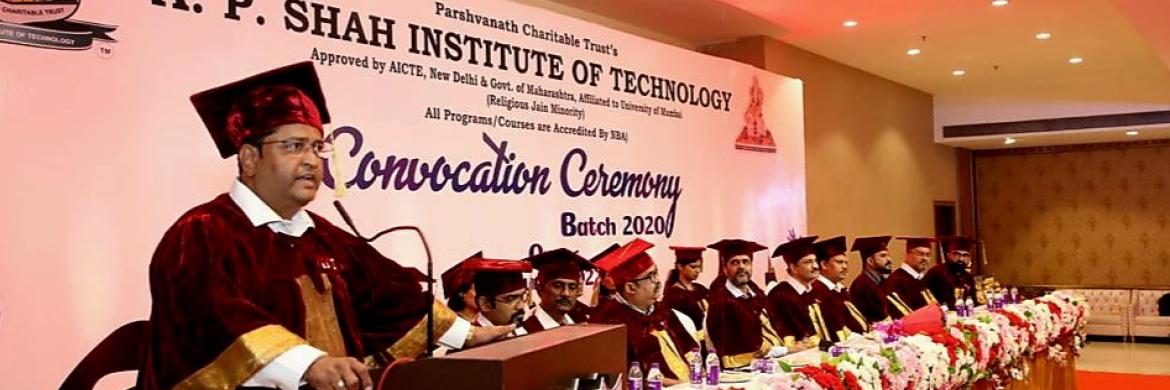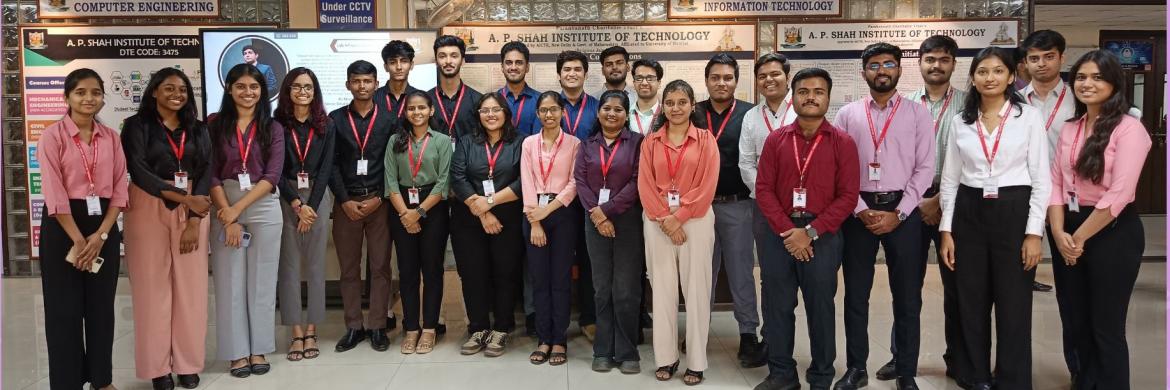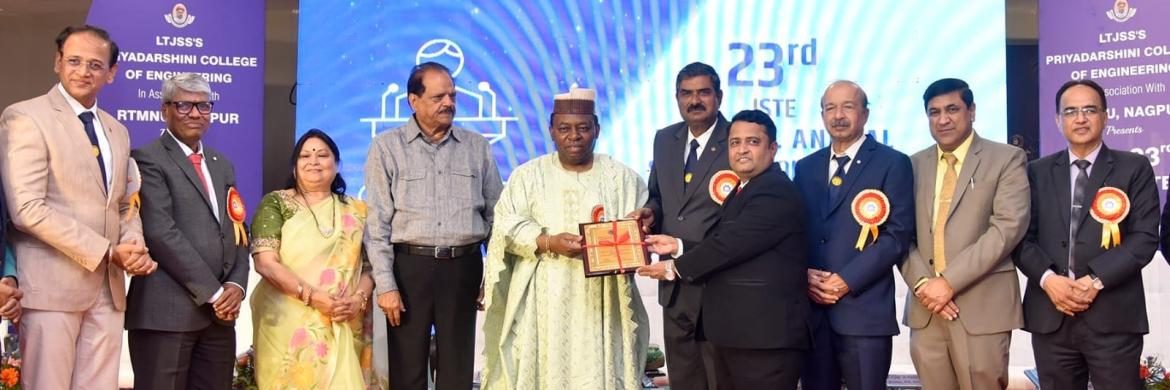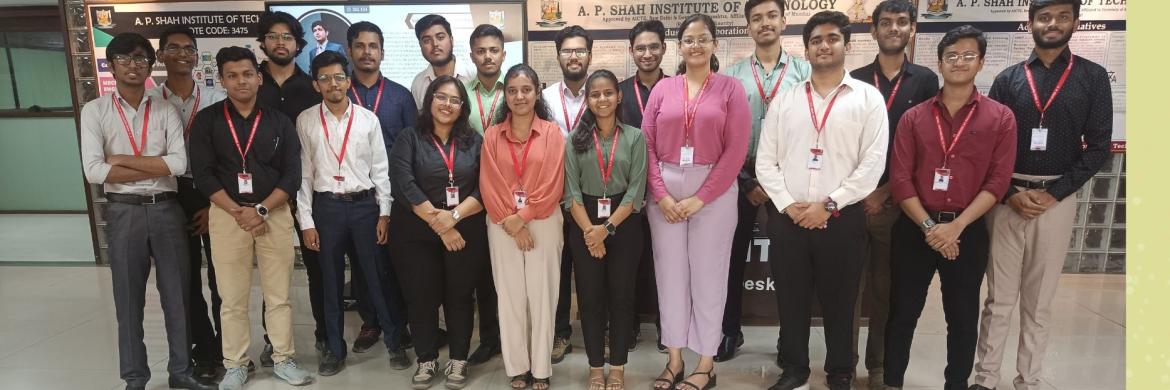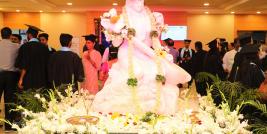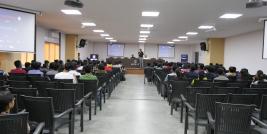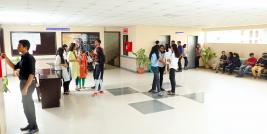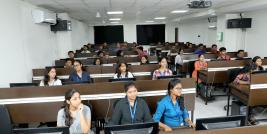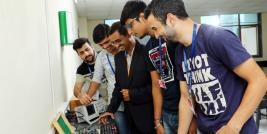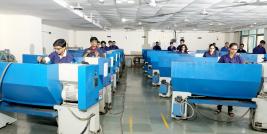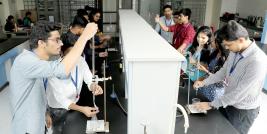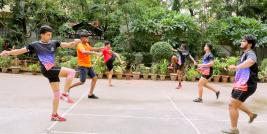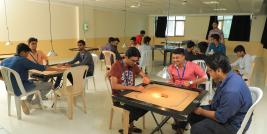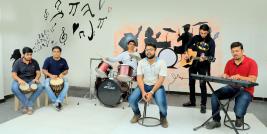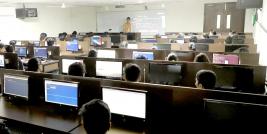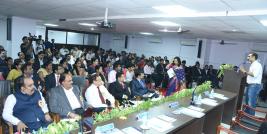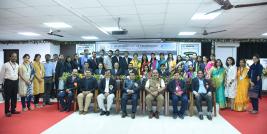Department of Mechanical Engineering:
Program Educational Objectives (PEO)
- PEO1 PREPARATION: To make students competent for higher studies and employable, to meet industrial requirements.
- PEO2 CORE COMPETENCE: To develop students having core competence in science, mathematics and fundamentals of Mechanical Engineering to address ever changing industrial requirements globally.
- PEO3 BREADTH: To create academically conducive environment to learn engineering skills in the domains such as Design, Manufacturing, Thermal & Allied Technologies.
- PEO4 PROFESSIONALISM: To enrich students with professional ethics, leadership qualities, and entrepreneurial skills.
- PEO5 LIFE LONG LEARNING: An ability to engage in lifelong learning for effective adaptation to technological developments.
Program Specific Outcome (PSO)
- Design and analyse mechanical systems, its components and/or processes by applying principles of thermal engineering, design, and manufacturing technology.
- To apply computational knowledge and managerial practices to execute professional responsibilities in industry or as an entrepreneur.
Program Outcome (PO)
- Engineering knowledge: Apply the knowledge of mathematics, science, engineering fundamentals, and an engineering specialization to the solution of complex engineering problems.
- Problem analysis: Identify, formulate, review research literature, and analyse complex engineering problems reaching substantiated conclusions using first principles of mathematics, natural sciences, and engineering sciences.
- Design/development of solutions: Design solutions for complex engineering problems and design system components or processes that meet the specified needs with appropriate consideration for the public health and safety, and the cultural, societal, and environmental considerations.
- Conduct investigations of complex problems: Use research-based knowledge and research methods including design of experiments, analysis and interpretation of data, and synthesis of the information to provide valid conclusions.
- Modern tool usage: Create, select, and apply appropriate techniques, resources, and modern engineering and IT tools including prediction and modelling to complex engineering activities with an understanding of the limitations.
- The engineer and society: Apply reasoning informed by the contextual knowledge to assess societal, health, safety, legal and cultural issues and the consequent responsibilities relevant tithe professional engineering practice.
- Environment and sustainability: Understand the impact of the professional engineering solutions in societal and environmental contexts, and demonstrate the knowledge of, and need for sustainable development.
- Ethics: Apply ethical principles and commit to professional ethics and responsibilities and norms of the engineering practice.
- Individual and team work: Function effectively as an individual, and as a member or leader in diverse teams, and in multidisciplinary settings.
- Communication: Communicate effectively on complex engineering activities with the engineering community and with society at large, such as, being able to comprehend and write effective reports and design documentation, make effective presentations, and give and receive clear instructions.
- Project management and finance: Demonstrate knowledge and understanding of the engineering and management principles and apply these to one’s own work, as a member and leader in a team, to manage projects and in multidisciplinary environments.
- Life-long learning: Recognize the need for, and have the preparation and ability to engage in independent and life-long learning in the broadest context of technological changes
